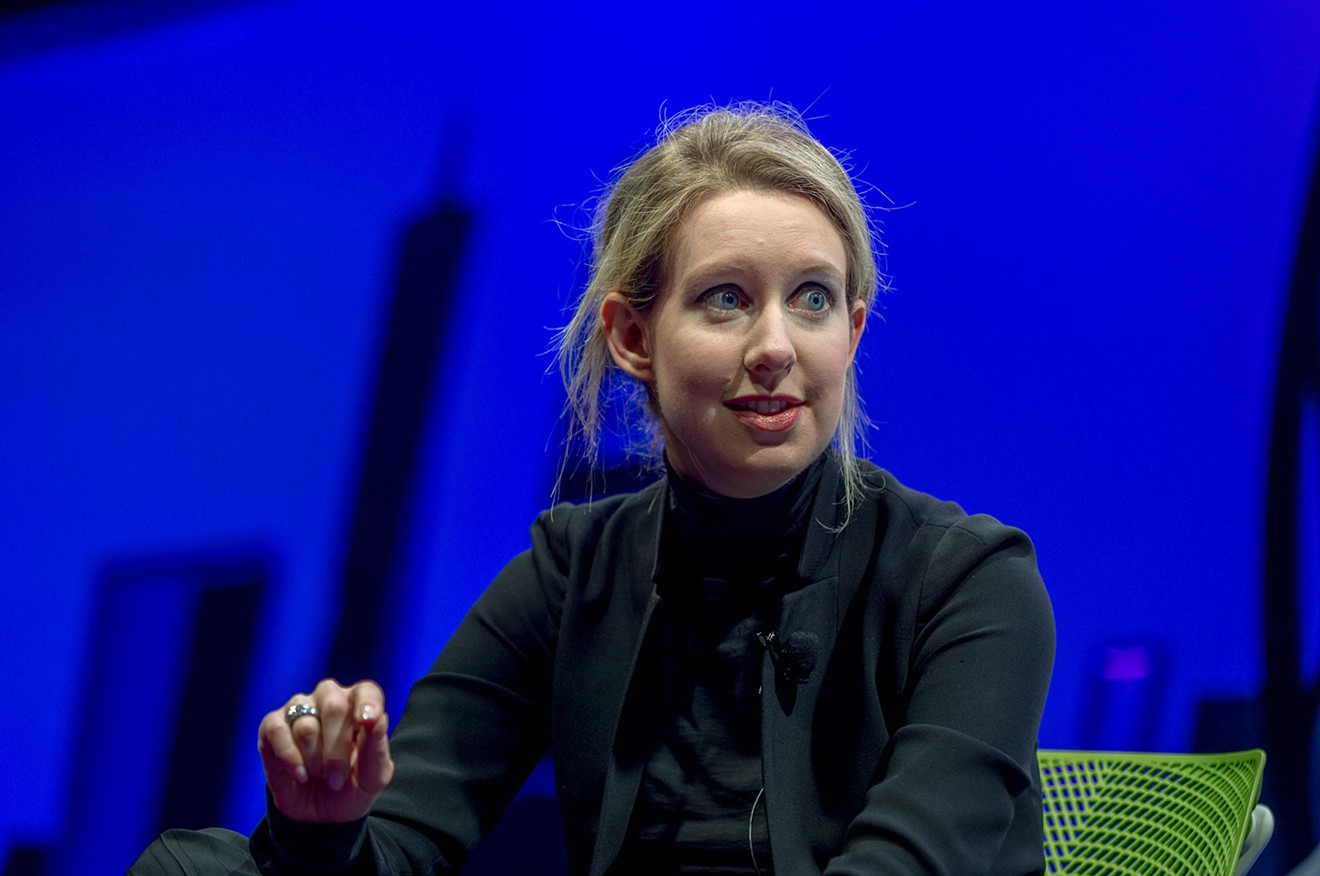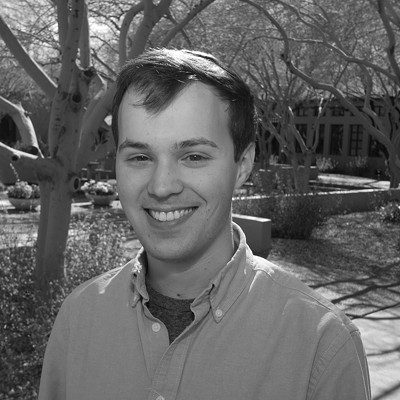Allegations against Theranos and Insys Therapeutics have been marked by explosive investigative reports, arrests by the FBI, and the public downfall of their founders.
But before that, the companies were bestowed the highest honor awarded by the Arizona Bioindustry Association.
Since winning the industry group's Company of the Year award, the two companies have been embroiled in alleged criminal practices. Insys, an opioid manufacturer based in Chandler, won the prize in 2014. Theranos, a Silicon Valley blood-testing company that became a venture-capital darling, won the following year.
FBI agents arrested Insys founder and CEO John Kapoor in October at his Phoenix home. He and several other former Insys executives have been charged with fraud for an alleged fentanyl-pushing bribery scheme. Meanwhile, the Securities and Exchange Commission accused Theranos founder and CEO Elizabeth Holmes with "massive fraud" in a March settlement.
In 2015, the association applauded Theranos's "commitment to patients" and "innovation in diagnostics development and health care delivery" when awarding the Palo Alto-based company the top honor. One year earlier, the association lauded Insys for its "rapidly escalating growth curve."
Association CEO and President Joan Koerber-Walker defended the awards when asked about them on Tuesday.
"I want to be very clear: Neither of these individuals were honored by AZBio," Koerber-Walker told Phoenix New Times. "The companies were honored by AZBio. There’s a difference. And the companies were honored for achieving specific things at the time that those awards were given."
The association's award reflected the work done by the Theranos employees, Koerber-Walker said. The company used the Phoenix area for a trial run of its finger-prick blood tests, a process that the company spun as a groundbreaking medical innovation. "At the end of the day, what we looked at was the work that was being done in Arizona by Theranos employees," she said. "And the work that was being done in Arizona by Theranos employees was impressive."
She also argued that the media served to pump up Holmes and Theranos much more than her Arizona industry group.
"AZBio is tiny compared to the media outlets that ran a number of stories on Elizabeth Holmes," Koerber-Walker said.
However, both Theranos and Insys are mired in legal troubles that go far beyond their individual founders.
For instance, Theranos, the company, was named in the U.S. Securities and Exchange Commission settlement.
In 2015, a series of articles in the Wall Street Journal revealed that Theranos's purported blood-testing breakthrough was a sham. Holmes said the Theranos machines could accurately perform scores of laboratory-style tests on just a few drops of blood pricked from a finger, with the potential to improve healthcare efficiency and detect medical conditions earlier than ever.
But in reality, the company's portable machines were not functioning as advertised, and often badly misread blood samples, resulting in consequences for patients that could be life-threatening.
Arizona served as a testing ground for the firm's portable blood-testing machines, which were deployed in dozens of Walgreens locations around the Valley. Flanked by Holmes, Ducey even signed a law in 2015 tailored to Theranos's burgeoning blood-testing operation, which allowed patients to order a laboratory test without authorization from their physician.
It was too good to be true. Holmes and Theranos were forced to settle with the SEC two months ago after the agency accused Holmes, Theranos, and former president Ramesh "Sunny" Balwani of "raising more than $700 million from investors through an elaborate, years-long fraud in which they exaggerated or made false statements about the company’s technology, business, and financial performance."
Holmes agreed to give up remaining 18.9 million shares of the company and pay a $500,000 fine. She also can't serve as an officer of a publicly traded company for a decade. Theranos agreed to a settlement with Arizona Attorney General Mark Brnovich last April — the company will reimburse Arizonans who purchased tests to the tune of $4.65 million.
Kapoor, meanwhile, was released on a $1 million bond and no longer has to wear an electronic monitor. The billionaire entered a not guilty plea to fraud charges brought by federal prosecutors in Boston.
Koerber-Walker praised Kapoor, describing him as an executive "who has done tremendous good for patients for many years across multiple companies." He was the chairman of Insys when her organization honored the company, not CEO, she argued.
"In the middle of a huge focus on the opioid crisis nationally, when everyone is looking for answers to the opioid crisis, Insys is a very convenient target," she said.
In fact, the Justice Department considers Insys' top executives as important targets in the fight against opioid abuse and deaths.
"The FBI will vigorously investigate corrupt organizations with business practices that promote fraud with a total disregard for patient safety," said Harold Shaw, the FBI's special agent for the Boston Field Division, in a statement announcing Kapoor's arrest.
Just over a year after the association honored Insys in September 2014, the company's former CEO, Michael Babich, stepped down and Kapoor replaced him as CEO. One year after that, Babich was arrested and charged with fraud along with Kapoor and five other former Insys executives.
When adjudicating the awards, Koerber-Walker said that the association accepts nominations and then relies on panels of volunteer judges — including academics, business leaders, and health care professionals — to grade each entry. Judges cannot have ties to any of the nominated parties. The individual or organization with the highest score wins. The 2018 awards will be held in October.
The Arizona Bioindustry Association is a 501(c)(6) trade group and raised over $556,200 in revenue in 2016, the most recent year for which the organization's IRS filings are available. Koeber-Walker received $148,000 as compensation in 2016, according to the filing.
The association's latest honorees in the category of Company of the Year, Bard Peripheral Vascular and GlobalMed, haven't been involved in any scandals. The association also recognizes public officials for their contributions to the field — Arizona Governor Doug Ducey and Congresswoman Kyrsten Sinema have received awards — in addition to bioindustry researchers.
There is no plan to rescind the awards for Theranos and Insys despite the federal charges against Kapoor and Holmes, Koerber-Walker explained.
"It’s convenient to have a revisionist history," she said. "We would all like to be able to look back and say we knew everything."
[
{
"name": "Air - MediumRectangle - Inline Content - Mobile Display Size",
"component": "18478561",
"insertPoint": "2",
"requiredCountToDisplay": "2"
},{
"name": "Editor Picks",
"component": "16759093",
"insertPoint": "4",
"requiredCountToDisplay": "1"
},{
"name": "Inline Links",
"component": "17980324",
"insertPoint": "8th",
"startingPoint": 8,
"requiredCountToDisplay": "7",
"maxInsertions": 25
},{
"name": "Air - MediumRectangle - Combo - Inline Content",
"component": "16759092",
"insertPoint": "8th",
"startingPoint": 8,
"requiredCountToDisplay": "7",
"maxInsertions": 25
},{
"name": "Inline Links",
"component": "17980324",
"insertPoint": "8th",
"startingPoint": 12,
"requiredCountToDisplay": "11",
"maxInsertions": 24
},{
"name": "Air - Leaderboard Tower - Combo - Inline Content",
"component": "16759094",
"insertPoint": "8th",
"startingPoint": 12,
"requiredCountToDisplay": "11",
"maxInsertions": 24
}
]












